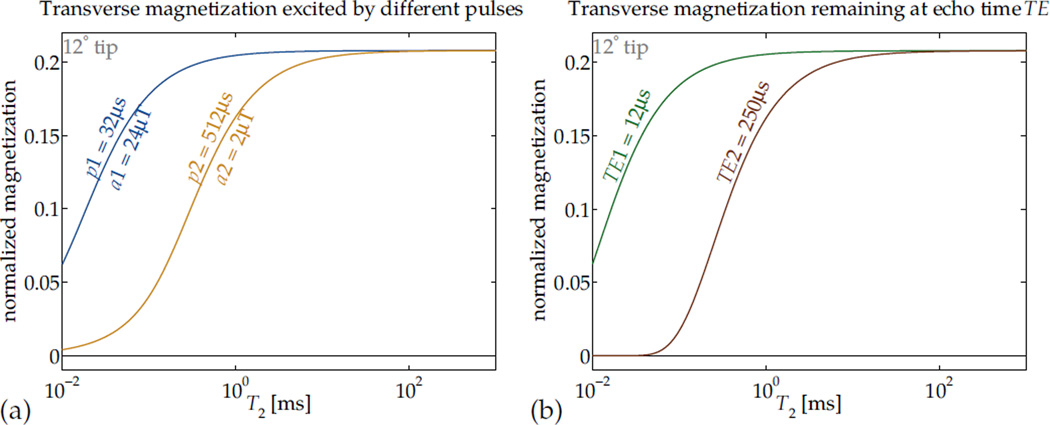Figure 2.
Relaxation that occurs during RF pulses can affect contrast (a). In this application, RF hard pulses with different durations and equal area can be used to effect differing short-T2-selectivity of excitation to transverse magnetization Mxy.
By analogy, in many imaging sequences, the echo time TE effectively imposes a ‘T2 selectivity’ or T2 contrast upon the image, such that magnetizations with short values of T2 contribute very little signal (b, assuming perfect excitation). Manipulation of contrast by matching RF pulse dimensions to particular relaxation rates can be used independently or in concert with TE selection.

